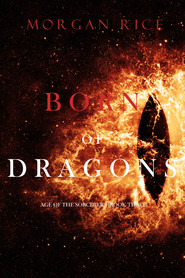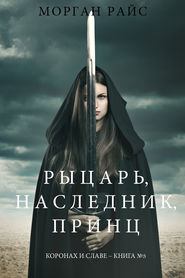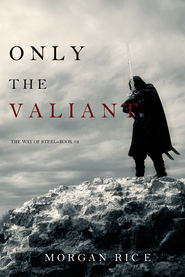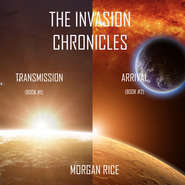По всем вопросам обращайтесь на: info@litportal.ru
(©) 2003-2024.
✖
Betrothed
Настройки чтения
Размер шрифта
Высота строк
Поля
He reached out his hand with a smile, she took it, and the two of them set off down the stairs.
* * *
As they walked out of the church, Caitlin spotted a river in the distance, and a wide road about fifty yards off of it, with a crudely carved wooden sign that read “King Street.” They had a choice to turn left or right. The city seemed more condensed to the left.
They turned left, heading north, up King Street, parallel to the river. As they went, Caitlin was amazed by the sights and sounds, taking it all in. To their right were a series of grand, wooden houses, great estates, built in the Tudor manor, with a white stucco exterior, brown framing, and culminating in a thatched roof. To their left, she was amazed to see, were rural parcels of farmland, with the occasional small, humble house, and sheep and cows dotting the landscape. London of 1599 was fascinating to her. One side of the street was cosmopolitan and wealthy, while the other was still populated by farmers.
The street itself was also a thing of wonder. Their feet nearly stuck in the mud as they walked, the dirt made even softer by all the foot and horse traffic. This in itself was bearable, but interlaced all throughout the dirt was excrement, from the packs of wild dogs, or, thrown out the windows, from humans. Indeed, as they went, shutters opened sporadically, and pails appeared, with old women throwing out waste from households. It smelled far worse than Venice or Florence or Paris. She almost gagged at times, and wished she had one of those small perfume pouches to bring to her nose. Luckily, at least, she still wore the practical sparring shoes that Aiden had given her back in Versailles. She couldn’t imagine ever walking down this street in heels.
Yet, intermixed with this strange mix of farmland and grand estates, was also the occasional feat of architecture. Caitlin was amazed to see, here and there, some buildings she actually recognized from pictures from the 21st century, ornate churches, and an occasional palace.
The road came to an abrupt halt in a large, arched gateway, several guards standing before it in uniform, standing at attention, holding lances. The gate was open, though, and they walked through.
A sign etched into stone read “Whitehall Palace,” and they continued through its long, narrow courtyard, then through another arched gate and out the other side, and back onto the main road. They soon approached a circular intersection with a sign that read “Charing Cross,” and a large vertical monument in its center. The road forked to the left and to the right.
"Which way?" she asked.
Caleb seemed as overwhelmed as she did. Finally, he said, “My instincts tell me to stay close to the river, and fork to the right.”
She closed her eyes, and tried to feel it, too. "I agree," she said, then added, "Do you have any idea exactly what it is we are looking for?"
He shook his head. "Your guess is as good as mine.”
She looked down at her ring, and read the riddle aloud once again.
Across the Bridge, Beyond the Bear,
With the Winds or the sun, we bypass London.
It didn't ring any bells for her, and it didn't appear to ring any for Caleb either.
"Well, it mentions London," she said, "so I feel like we’re on the right track. My instinct tells me that we have to proceed further, deeper into the city, and that we’ll know it when we see it.”
He agreed, and she took his hand, and they forked right, heading parallel to the river, following a sign that read “The Strande.”
As they continued along this new street, she noticed that the area was getting more and more dense, with more houses built close to each other, on both sides of the street. It felt like they were getting closer to the center of town. The streets were becoming more crowded, too. The weather was perfect – it felt like an early fall day to her, and the sun shone steadily. She briefly wondered what month it was. It amazed her how she had lost track of time.
At least it wasn't too hot. But as the streets became more and more filled with people, she was beginning to feel claustrophobic. They were definitely approaching the center of a huge, metropolitan city, even if it didn’t have the modern-day sophistication. She was surprised: she had always imagined the old times to have less people, to be less crowded. But if anything, the opposite was true: as the streets became more and more packed, she couldn't believe how crowded it was. It reminded her of being back in New York City in the 21st century. People elbowed and jostled and didn't even look back to apologize. They also stank.
Adding to the scene, on every corner were street peddlers, aggressively trying to sell their wares. In every direction, people shouted out, in funny British accents.
And when the voices of the peddlers died down, other voices dominated the air: those of preachers. Everywhere, Caitlin saw makeshift platforms, stages, soapboxes, pulpits, on which preachers stood and preached their sermons to the masses, shouting to be heard.
"Jesus says REPENT!" yelled one minister, standing there with a funny top hat and a stern gaze, looking down at the crowd in a sweeping gaze. "I say that ALL THEATRES must be shut down! All idle time must be FORBIDDEN! Return to your houses of worship!”
It reminded Caitlin of the people who preached from street corners in New York City. In some ways, nothing had changed.
They came to another gateway, right in the middle of the street, with a sign that read “Temple Barre, City Gate.” Caitlin was amazed that cities actually had gates. The large, imposing gate was open, for people to pass right through, and Caitlin wondered if they closed it at night. On either side stood more guards.
But this gate was different: it seemed to also be a gathering place. A large crowd huddled around it, and way up high, atop a small platform, a guard stood holding a whip. Caitlin looked up and was amazed to see that a man, chained and barely clothed, was tied to a whipping post. The guard reached back and lashed him again and again, and the entire crowd oohed and aahed at the sight.
Caitlin surveyed the faces of the crowd, and couldn’t believe how indifferent they seemed, as if this were an ordinary, everyday occurrence, as if it were a popular form of entertainment. She felt anger well up inside her at the barbarism of this society, and she nudged Caleb. He was also riveted to the scene, and she took his hand and hurried through the gate with him, forcing herself not to look. She feared that if she dwelled on it too much, she would be unable to stop herself from attacking the guards.
“This place is barbaric,” she said, as they gained distance from the grizzly sight and the sounds of the whip grew fainter.
“Terrible,” he agreed.
As they continued onward, she tried to put the image out of her head. She forced herself to focus her attention elsewhere. She looked up at a street sign, and saw that the name of the street they were walking on had changed, to “Fleet Street.” As they walked, the streets became even more crowded, more condensed, and the buildings and numerous rows of wooden houses were built even closer to each other. This street was also lined with various stores. One sign read: “Shave for a Penny.” Before another shop dangled a blacksmith's sign, with a horseshoe hanging in front of it. Another sign read, in large letters, “Horse Saddles.”
"Need a new horseshoe, Miss?" a local shopkeeper asked Caitlin as they walked by.
She was caught off guard. "Um… no thanks," she said.
"How about you, Sir?" persisted the man. "Want a shave? I’ve got the cleanest blades on Fleet Street.”
Caleb smiled back at the man. "Thank you, but I'm okay."
Caitlin looked at Caleb, and realized how clean-shaven he looked, all the time. His face was so smooth, it looked like porcelain.
As they continued down Fleet Street, Caitlin couldn't help noticing how the crowd had changed. It became more seedy here, with several people openly drinking from flasks and glass bottles, stumbling about, laughing too loudly, and openly leering at women.
"GIN HERE! GIN HERE!" yelled out a boy, hardly older than ten, holding a crate filled with small green bottles of gin. “GET YOUR BOTTLE! TWO FARTHINGS! GET YOUR BOTTLE!”
Caitlin got jostled again, as the crowd grew increasingly thick. She looked over and saw a group of women, with too much makeup, dressed in heavy clothing with tons of fabric, and with their shirts pulled down low, revealing most of their breasts.
"Want a good time?" one of the women yelled out, clearly drunk, wobbling on her feet. She approached a passerby, who roughly pushed her off.
Caitlin was amazed at how rough this part of town was. She felt Caleb instinctively come closer, putting his hand around her waist, and she could feel his protectiveness. They picked up their pace and continued quickly through the crowd, and Caitlin looked down and checked that Ruth was still by their side.
The street soon ended in a small foot bridge, and as they walked over, Caitlin looked down. She saw a large sign that read “Fleet Ditch,” and was amazed at the sight. Below them was what looked like a small canal, maybe ten feet wide, completely flowing with murky water. Amidst this water bobbed all sorts of garbage and refuse. As she looked up, she saw people urinating into it, and saw others throwing pots of excrement, chicken bones, household refuse, and all sorts of debris. It looked like an immense, flowing sewer, carrying all the waste of the city downstream.
She looked to see where it lead, and saw that, far off in the distance, it led into the river. She turned her head away at the smell. It was probably the worst thing she had ever smelled in her life. Toxic gases rose up, and made the awful smell of the streets seem like roses in comparison.
They hurried over the bridge.
As they crossed to the other side of Fleet Street, Caitlin was relieved to see that the street finally opened up, and became a little less condensed. The smell, too, faded. And after the horrific smell of Fleet Ditch, the everyday street smells no longer bothered her. She realized that that was how people lived happily with these conditions: it was all about what you got used to, in context of the time you lived.
As they walked, the neighborhood became nicer. They passed a huge church on the left, and etched into the stone edifice, in neat calligraphy, were the words: “Saint Paul's.” It was a massive church, with a beautiful ornate façade, reaching high into the sky, towering over all the buildings around it. Caitlin marveled at how beautiful its architecture was, that such a building could still fit in perfectly in the 21st century. It felt so out of place, towering above all the small wooden architecture around it. Caitlin was beginning to see just how much churches dominated the urban landscape of this time, and just how important they were to its people. They were literally omnipresent. And their bells, so loud, were always ringing.
Caitlin paused before it, studying its ancient architecture, and couldn’t help but wonder if perhaps some clue lay for them inside.
"I wonder if we should go in?" Caleb asked, reading her mind.
She studied her ring’s inscription once again.
Across the bridge, Beyond the Bear.
"It mentions a bridge," she said, thinking.
“We just crossed a bridge," Caleb answered.
* * *
As they walked out of the church, Caitlin spotted a river in the distance, and a wide road about fifty yards off of it, with a crudely carved wooden sign that read “King Street.” They had a choice to turn left or right. The city seemed more condensed to the left.
They turned left, heading north, up King Street, parallel to the river. As they went, Caitlin was amazed by the sights and sounds, taking it all in. To their right were a series of grand, wooden houses, great estates, built in the Tudor manor, with a white stucco exterior, brown framing, and culminating in a thatched roof. To their left, she was amazed to see, were rural parcels of farmland, with the occasional small, humble house, and sheep and cows dotting the landscape. London of 1599 was fascinating to her. One side of the street was cosmopolitan and wealthy, while the other was still populated by farmers.
The street itself was also a thing of wonder. Their feet nearly stuck in the mud as they walked, the dirt made even softer by all the foot and horse traffic. This in itself was bearable, but interlaced all throughout the dirt was excrement, from the packs of wild dogs, or, thrown out the windows, from humans. Indeed, as they went, shutters opened sporadically, and pails appeared, with old women throwing out waste from households. It smelled far worse than Venice or Florence or Paris. She almost gagged at times, and wished she had one of those small perfume pouches to bring to her nose. Luckily, at least, she still wore the practical sparring shoes that Aiden had given her back in Versailles. She couldn’t imagine ever walking down this street in heels.
Yet, intermixed with this strange mix of farmland and grand estates, was also the occasional feat of architecture. Caitlin was amazed to see, here and there, some buildings she actually recognized from pictures from the 21st century, ornate churches, and an occasional palace.
The road came to an abrupt halt in a large, arched gateway, several guards standing before it in uniform, standing at attention, holding lances. The gate was open, though, and they walked through.
A sign etched into stone read “Whitehall Palace,” and they continued through its long, narrow courtyard, then through another arched gate and out the other side, and back onto the main road. They soon approached a circular intersection with a sign that read “Charing Cross,” and a large vertical monument in its center. The road forked to the left and to the right.
"Which way?" she asked.
Caleb seemed as overwhelmed as she did. Finally, he said, “My instincts tell me to stay close to the river, and fork to the right.”
She closed her eyes, and tried to feel it, too. "I agree," she said, then added, "Do you have any idea exactly what it is we are looking for?"
He shook his head. "Your guess is as good as mine.”
She looked down at her ring, and read the riddle aloud once again.
Across the Bridge, Beyond the Bear,
With the Winds or the sun, we bypass London.
It didn't ring any bells for her, and it didn't appear to ring any for Caleb either.
"Well, it mentions London," she said, "so I feel like we’re on the right track. My instinct tells me that we have to proceed further, deeper into the city, and that we’ll know it when we see it.”
He agreed, and she took his hand, and they forked right, heading parallel to the river, following a sign that read “The Strande.”
As they continued along this new street, she noticed that the area was getting more and more dense, with more houses built close to each other, on both sides of the street. It felt like they were getting closer to the center of town. The streets were becoming more crowded, too. The weather was perfect – it felt like an early fall day to her, and the sun shone steadily. She briefly wondered what month it was. It amazed her how she had lost track of time.
At least it wasn't too hot. But as the streets became more and more filled with people, she was beginning to feel claustrophobic. They were definitely approaching the center of a huge, metropolitan city, even if it didn’t have the modern-day sophistication. She was surprised: she had always imagined the old times to have less people, to be less crowded. But if anything, the opposite was true: as the streets became more and more packed, she couldn't believe how crowded it was. It reminded her of being back in New York City in the 21st century. People elbowed and jostled and didn't even look back to apologize. They also stank.
Adding to the scene, on every corner were street peddlers, aggressively trying to sell their wares. In every direction, people shouted out, in funny British accents.
And when the voices of the peddlers died down, other voices dominated the air: those of preachers. Everywhere, Caitlin saw makeshift platforms, stages, soapboxes, pulpits, on which preachers stood and preached their sermons to the masses, shouting to be heard.
"Jesus says REPENT!" yelled one minister, standing there with a funny top hat and a stern gaze, looking down at the crowd in a sweeping gaze. "I say that ALL THEATRES must be shut down! All idle time must be FORBIDDEN! Return to your houses of worship!”
It reminded Caitlin of the people who preached from street corners in New York City. In some ways, nothing had changed.
They came to another gateway, right in the middle of the street, with a sign that read “Temple Barre, City Gate.” Caitlin was amazed that cities actually had gates. The large, imposing gate was open, for people to pass right through, and Caitlin wondered if they closed it at night. On either side stood more guards.
But this gate was different: it seemed to also be a gathering place. A large crowd huddled around it, and way up high, atop a small platform, a guard stood holding a whip. Caitlin looked up and was amazed to see that a man, chained and barely clothed, was tied to a whipping post. The guard reached back and lashed him again and again, and the entire crowd oohed and aahed at the sight.
Caitlin surveyed the faces of the crowd, and couldn’t believe how indifferent they seemed, as if this were an ordinary, everyday occurrence, as if it were a popular form of entertainment. She felt anger well up inside her at the barbarism of this society, and she nudged Caleb. He was also riveted to the scene, and she took his hand and hurried through the gate with him, forcing herself not to look. She feared that if she dwelled on it too much, she would be unable to stop herself from attacking the guards.
“This place is barbaric,” she said, as they gained distance from the grizzly sight and the sounds of the whip grew fainter.
“Terrible,” he agreed.
As they continued onward, she tried to put the image out of her head. She forced herself to focus her attention elsewhere. She looked up at a street sign, and saw that the name of the street they were walking on had changed, to “Fleet Street.” As they walked, the streets became even more crowded, more condensed, and the buildings and numerous rows of wooden houses were built even closer to each other. This street was also lined with various stores. One sign read: “Shave for a Penny.” Before another shop dangled a blacksmith's sign, with a horseshoe hanging in front of it. Another sign read, in large letters, “Horse Saddles.”
"Need a new horseshoe, Miss?" a local shopkeeper asked Caitlin as they walked by.
She was caught off guard. "Um… no thanks," she said.
"How about you, Sir?" persisted the man. "Want a shave? I’ve got the cleanest blades on Fleet Street.”
Caleb smiled back at the man. "Thank you, but I'm okay."
Caitlin looked at Caleb, and realized how clean-shaven he looked, all the time. His face was so smooth, it looked like porcelain.
As they continued down Fleet Street, Caitlin couldn't help noticing how the crowd had changed. It became more seedy here, with several people openly drinking from flasks and glass bottles, stumbling about, laughing too loudly, and openly leering at women.
"GIN HERE! GIN HERE!" yelled out a boy, hardly older than ten, holding a crate filled with small green bottles of gin. “GET YOUR BOTTLE! TWO FARTHINGS! GET YOUR BOTTLE!”
Caitlin got jostled again, as the crowd grew increasingly thick. She looked over and saw a group of women, with too much makeup, dressed in heavy clothing with tons of fabric, and with their shirts pulled down low, revealing most of their breasts.
"Want a good time?" one of the women yelled out, clearly drunk, wobbling on her feet. She approached a passerby, who roughly pushed her off.
Caitlin was amazed at how rough this part of town was. She felt Caleb instinctively come closer, putting his hand around her waist, and she could feel his protectiveness. They picked up their pace and continued quickly through the crowd, and Caitlin looked down and checked that Ruth was still by their side.
The street soon ended in a small foot bridge, and as they walked over, Caitlin looked down. She saw a large sign that read “Fleet Ditch,” and was amazed at the sight. Below them was what looked like a small canal, maybe ten feet wide, completely flowing with murky water. Amidst this water bobbed all sorts of garbage and refuse. As she looked up, she saw people urinating into it, and saw others throwing pots of excrement, chicken bones, household refuse, and all sorts of debris. It looked like an immense, flowing sewer, carrying all the waste of the city downstream.
She looked to see where it lead, and saw that, far off in the distance, it led into the river. She turned her head away at the smell. It was probably the worst thing she had ever smelled in her life. Toxic gases rose up, and made the awful smell of the streets seem like roses in comparison.
They hurried over the bridge.
As they crossed to the other side of Fleet Street, Caitlin was relieved to see that the street finally opened up, and became a little less condensed. The smell, too, faded. And after the horrific smell of Fleet Ditch, the everyday street smells no longer bothered her. She realized that that was how people lived happily with these conditions: it was all about what you got used to, in context of the time you lived.
As they walked, the neighborhood became nicer. They passed a huge church on the left, and etched into the stone edifice, in neat calligraphy, were the words: “Saint Paul's.” It was a massive church, with a beautiful ornate façade, reaching high into the sky, towering over all the buildings around it. Caitlin marveled at how beautiful its architecture was, that such a building could still fit in perfectly in the 21st century. It felt so out of place, towering above all the small wooden architecture around it. Caitlin was beginning to see just how much churches dominated the urban landscape of this time, and just how important they were to its people. They were literally omnipresent. And their bells, so loud, were always ringing.
Caitlin paused before it, studying its ancient architecture, and couldn’t help but wonder if perhaps some clue lay for them inside.
"I wonder if we should go in?" Caleb asked, reading her mind.
She studied her ring’s inscription once again.
Across the bridge, Beyond the Bear.
"It mentions a bridge," she said, thinking.
“We just crossed a bridge," Caleb answered.

















